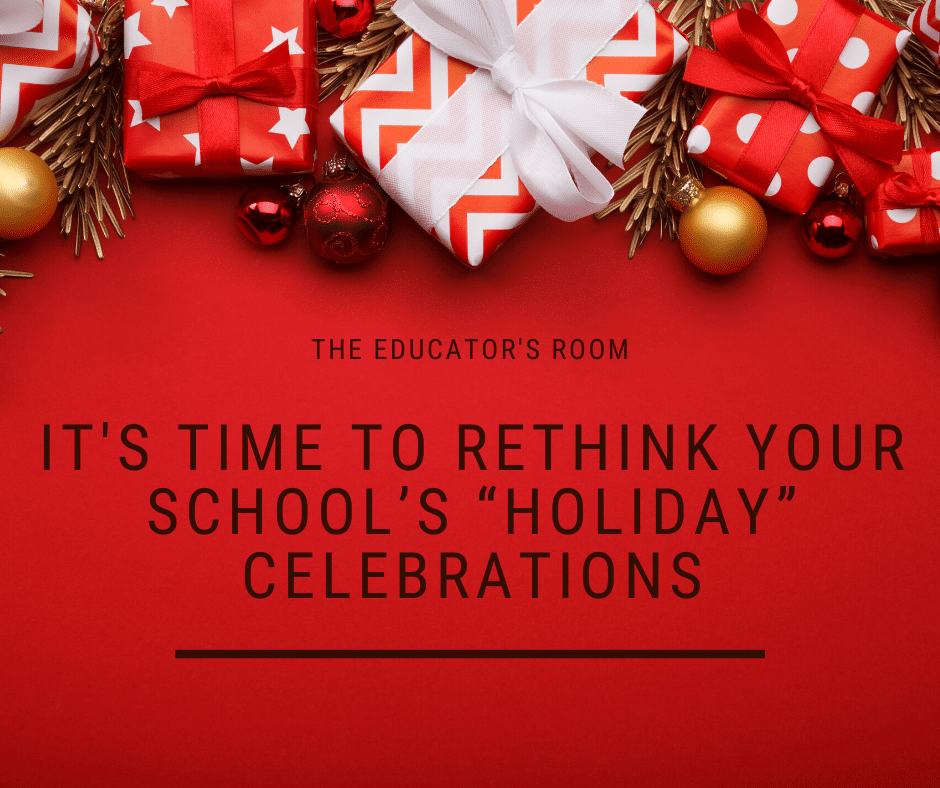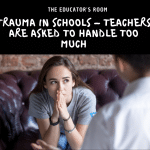I am someone who doesn’t fall into either of the largest categories. I am a Jewish American. And as a teacher, I’m exhausted by the annual charade of inclusiveness that comes each December.
Each year that I’ve been teaching in New York City, across four different schools, there’s a similar array of “holiday” events. We have a “holiday” party for school staff. There’s a “holiday” performance by students for their families. Sometimes there are other “holiday” activities like building gingerbread houses.
In response to all of this I want to ask, “Can we not?”
Let me be clear: I’m not trying to be Ebenezer Scrooge or the Grinch here. I recognize the amount of joy this time of year brings to adults and children.
My issue isn’t really with people wanting to celebrate and spread Christmas joy during one of the darkest and emotionally draining times of the school year. My issue is the faux inclusiveness of naming everything a “holiday” this or that.
Happy Holidays? Which Ones?
The most important Jewish holidays of the year are in the fall (Rosh Hashana, Yom Kippur, Sukkot, and Simcha Torah) and spring (Passover). The most important Muslim holidays vary each year, but recently Eid al-Adha has been in the fall and Eid al-Fitr has been late spring. Diwali fell on October 27th this year. Lunar New Year will be January 25th this school year.
You get the point.
It feels like we make a big show out of calling every December activity a “holiday” activity, and it feels disingenuous. We wouldn’t be doing any of this if Christmas wasn’t coming December 25th. The Jewish holiday Hanukkah often gets sucked into this “holiday season.” And though Hanukkah may fall around this time, it’s really not an important Jewish holiday. It’s only recently gained significance because of what it represents to American Jews as a mode of assimilation into whiteness and consumerist culture. Otherwise, it’s perhaps more important to liberal Christians because it provides a way for Christmas festivities to obtain a veneer of multiculturalism. People appropriate Kwanzaa for the same purpose while most schools won’t touch the actual Black nationalist origins of the holiday.
So can we cut the act? Can we admit that all the “holiday” festivities aren’t about holidays at all? As I said, I don’t mind if you all want to celebrate Christmas (it’s clear you really want to). But maybe just stop being so awkward and sheepish about it?
When we have a “Holiday Colors” day at school and you tell me to dress up in red or green, it’s obvious which holiday we’re talking about. When we have “Holiday Headgear” day so people can wear Santa hats or reindeer antlers, it’s obvious which holiday we’re talking about. When we have our “Holiday Performance” and kids sing and dance to songs like “Jingle Bell Rock” or recite “The Night Before Christmas,” it’s obvious which holiday we’re talking about.
Except we refuse to actually talk about the holiday by name. The result is an implicit messaging that holidays = Christian holidays, and Christian holidays = normal.
Celebrating an Honest and Inclusive Holiday Season
Here’s what I would prefer: Let’s explicitly name that Christmas is coming up. Let’s talk about how many people celebrate Christmas, and the many different ways they celebrate it. Let’s also talk about how Christmas and mass consumerism have been integrated to serve capitalism. Maybe we can also talk about different ways to resist consumerism so we can support kids whose families can’t or don’t buy expensive gifts.
Then let’s talk about the people who don’t celebrate Christmas. Let’s talk about the holidays that come at different times of the year and let’s acknowledge them when they come! And let’s talk about the people who don’t celebrate any holidays at all whether they’re Jehovah’s Witnesses or atheists.
Ultimately, as a Jewish person, I appreciate the intention to make this time of year a “holiday season” rather than a Christmas one. But when we don’t explicitly acknowledge which holidays we’re talking about, we actually undermine our efforts to be inclusive.
For more on ways to rethink the “holiday season” here are a couple of resources. The first is from the National Association for the Education of Young Children (NAEYC) and the other comes from Teaching Tolerance.






